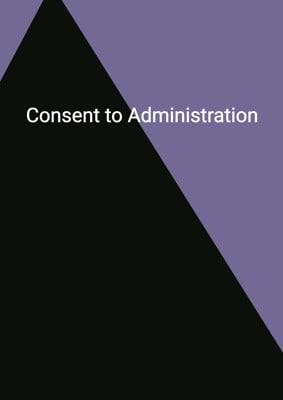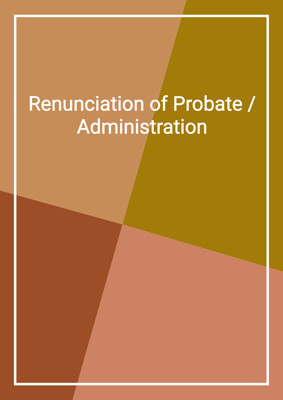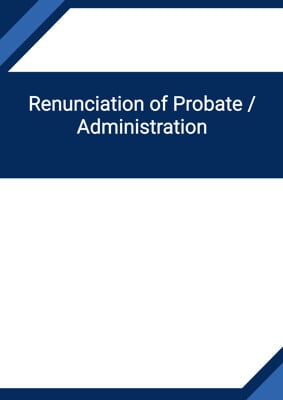
Introduction to Will, Probate, Administration and Living Will
Guide
A quick reference guide on which template to use in relation to Will, Probate, Administration, and Living Will. If you have no prior experience in Will, Probate, Administration, and Living Will, this guide will be very useful to help you navigate the various documents.
How to Tailor the Document for Your Need?
01
Create Document
Click "Create Document" button and the document will be prepared with your account details automatically filled in.
02
Fill Information
Please fill in any additional information by following the step-by-step guide on the left hand side of the preview document and click the "Next" button.
03
Get Document
When you are done, click the "Get Document" button and you can download the document in Word or PDF format.
04
Review Document
Please review the document carefully and make any final modifications to ensure that the details are correct before publication / distribution.
Document Preview
Document Description
The document titled 'Introduction to Will, Probate, Administration and Living Will' provides a comprehensive overview of various legal documents related to wills, probate, administration, and living wills. It emphasizes the significance of these documents in ensuring the proper distribution of assets and the fulfillment of the testator's wishes. The document begins with a quick reference guide indicating which document to use in different circumstances.
Section 1 is about wills, probate, and intestacy It provides information on the distribution of assets and administration of estates when a person dies with or without a will. It also discusses the advantages of creating a will, and what the formalities and considerations of making a will are. Lastly, it explains the process of obtaining a grant of representation and the different types of grants available.
Section 2 is about living wills, which are different from last wills and testaments. It explains that a living will allows individuals to express their wishes for medical care or financial management in the event of incapacity or inability to communicate, and gives examples of different types of living wills.
The document concludes by reiterating the importance of these legal documents and the need to consult with a local lawyer for specific jurisdictional advice.
How to use this document?
1. Determine the appropriate document: Assess your specific circumstances and determine which document from the provided table suits your needs regarding wills, probate, administration, and living wills.
2. Create a will: Understand the advantages of creating a will, such as arranging asset distribution, leaving assets to non-relatives, and appointing executors. Follow the formalities of making a will, including writing, signing, dating, and witnessing. Consider seeking help from a solicitor for their expertise.
3. Consider important matters: Take into account various factors when making a will, such as jurisdictions, executors, gifts to non-relatives, personal and real properties, inheritance by minors, guardianship of minor children, funeral arrangements, and common disaster clauses.
4. Understand the grant of representation: Familiarize yourself with the concept of probate and letters of administration. Know the differences between them and the advantages of having a will over not having one. Search for the final will and testament and take inventory of the deceased's assets.
5. Settle debts, taxes, and expenses: Prioritize settling the deceased's debts, taxes, and expenses before distributing the estate. Ensure proper payment or provisions for payment to avoid complications.
6. Distribute the estate: Follow the distribution process outlined in the document based on whether there is a will or not. Understand the order of priority for beneficiaries and the treatment of illegitimate and adopted children.
7. Understand living wills: Differentiate between a living will and a last will and testament. Recognize the importance of a living will in expressing end-of-life medical care and financial management preferences.
8. Choose the appropriate living will: Determine the type of living will that suits your needs, such as advance directives, enduring power of attorney, or statements/letters of wishes. Understand the legal standing and requirements for each type.
9. Seek legal advice: Consult with a local lawyer to ensure compliance with jurisdictional requirements and to address any specific concerns or questions you may have regarding wills, probate, administration, and living wills.
10. Keep documents up to date: Review and update your will and living will periodically to reflect any changes in your circumstances or preferences. Ensure that your documents accurately represent your wishes and intentions.
Not the right document?
Don’t worry, we have thousands of documents for you to choose from:


























